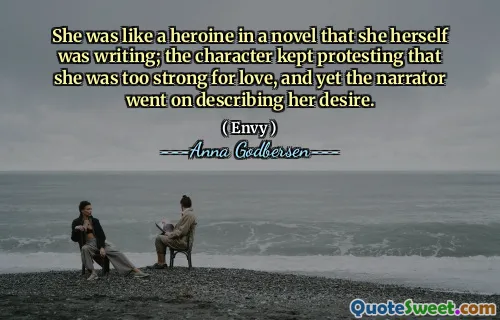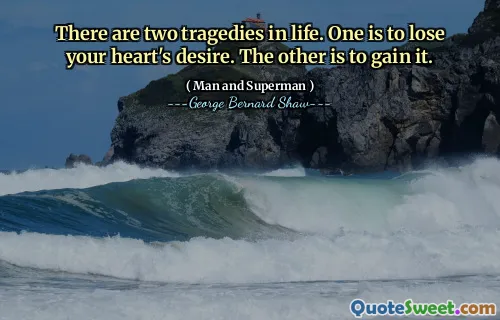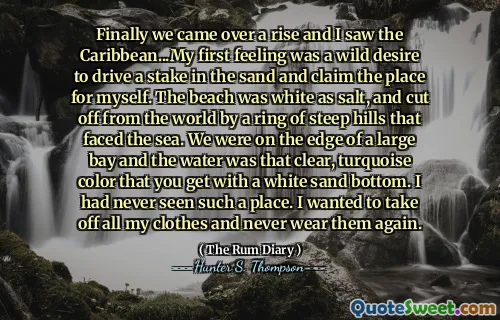
She was like a heroine in a novel that she herself was writing; the character kept protesting that she was too strong for love, and yet the narrator went on describing her desire.
This quote captures a compelling internal conflict where the protagonist simultaneously asserts her own strength and attempts to reject a vulnerability that love represents, while an external force—the narrator, symbolizing perhaps her subconscious or fate—continues to reveal her hidden desires. The metaphor of a heroine writing herself suggests the complex interplay between self-perception and the influence of narrative forces beyond one's control. It illuminates how individuals often craft their own identities with intentions that may contradict their underlying feelings or truths.
What resonates profoundly here is the juxtaposition of strength against desire, highlighting a universal human experience: the struggle between independence and the need for emotional connection. The character’s protests to remain impervious to love echo a protective mechanism—a barrier erected to maintain autonomy or avoid pain. Yet, the persistent narration of her desire hints at an innate human vulnerability that defies even her strongest defenses.
The quote speaks to the tension between control and surrender; it suggests that while we may try to write our own stories according to our ideals and reasoning, there are currents within us—emotions, longings, perhaps even fates—that reshape or challenge the narrative. In exploring this internal dialogue, the quote invites reflection on the complexity of identity and the ways in which our desires can coexist with, or sometimes undermine, our conscious intentions. Ultimately, it’s a poetic meditation on how love, in its many forms, remains an indomitable force shaping the stories we tell about ourselves.


